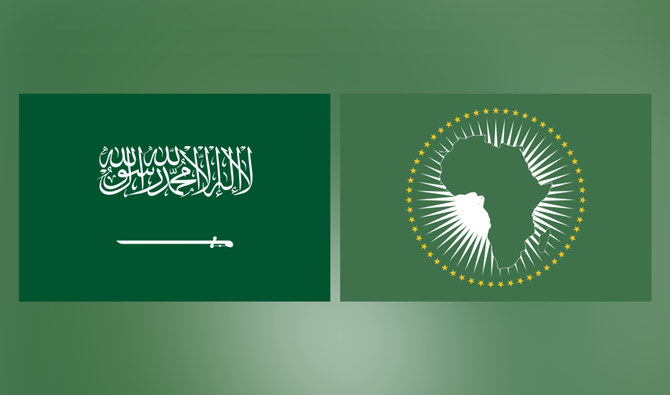Saudi Arabia can play key role in Africa’s promising future

https://arab.news/bb9ky
Africa Day, which is celebrated every year on May 25, is a joyous occasion that is a symbol of the brotherhood and unity among the people of Africa, a land of diversity and abundant resources. This year’s celebration of the 60th anniversary of the establishment of the African Unity Organization comes at a time when Africa is prioritizing its development for a better future for all. We hope that this future will be prosperous.
The continent of Africa, the world’s second-largest both in terms of land area and population, is making steady progress toward economic integration and development through the activation of its various regional organizations and unions. These include the Economic Community of West African States, the Common Market for Eastern and Southern Africa, the Intergovernmental Authority on Development, the Southern African Development Community, the Central African Economic and Monetary Community, and the Community of Sahel-Saharan States. In addition, South Africa is a member of the BRICS group, which includes some of the world’s most important emerging economies, namely Brazil, Russia, India and China.
The 60th anniversary of the establishment of the African Unity Organization comes while Djibouti, a member of both the Intergovernmental Authority on Development and the Common Market for Eastern and Southern Africa, makes up part of one of the largest free trade areas in Africa. Djibouti is located in a highly strategic position that links the three continents of Africa, Asia and Europe, and it hosts one of the world’s busiest commercial shipping lanes.
The Charter of the African Unity Organization was signed on May 25, 1963, following the first African summit held in Addis Ababa and attended by representatives of 32 independent African countries. One of the most significant outcomes of this summit was the signing of the charter and its principles of noninterference in the internal affairs of states and respect for the sovereignty and territorial integrity of member states of the organization.
At its founding, the African Unity Organization set out several goals, including the liberation of the continent from colonialism, the elimination of economic underdevelopment, the strengthening of African solidarity, and the elevation of the continent’s status in the international decision-making arena.
Nearly 40 years on from its establishment, in May 2001, African leaders confirmed its replacement with the African Union, which consists of 55 member states and seeks to address key political, social and economic issues, including reducing and ending conflicts and promoting development and integration throughout Africa through an ambitious agenda for the year 2063. The African Union’s motto, “An Integrated, Prosperous and Peaceful Africa,” summarizes the organization’s direction and goals.
Saudi-African relations have a long and strong history due to the geographic proximity of the Arabian Peninsula and the African continent.
Dya-Eddine Said Bamakhrama
Regarding African-Arab relations, historical evidence confirms that the cultural and civilizational communication between the two sides is ancient. The name of the continent was given by the Berbers to Tunisia, the Arab-African country.
The African Union includes several groups, such as the African-Arab bloc, the French-speaking bloc, the English-speaking bloc and the Portuguese-speaking African countries.
The Arab League has played an important role in supporting the independence of many African countries. Saudi-African relations have also had a long and strong history due to the geographic proximity of the Arabian Peninsula and the African continent. These relations have developed and expanded between Saudi Arabia and African countries, with about 40 African embassies in Riyadh out of the total 55 member states of the African Union. Saudi Arabia also has 35 embassies in the capitals of African countries, indicating the depth of ties, communication and the importance of these relations and common interests.
In the Organization of Islamic Cooperation, based in Jeddah, there are about 25 African countries among the 57 full member states.
Since assuming power, King Salman and Crown Prince Mohammed bin Salman have received dozens of African heads of state during various visits to the Kingdom, indicating the important diplomatic movement between Saudi Arabia and African countries. One of the most important models of Saudi-African cooperation is the Saudi Development Fund, which has giant development projects in various African countries. The Islamic Development Bank also has numerous development projects and we all know that, although this is an international institution, Saudi Arabia is its largest contributor. Moreover, the role of the King Salman Center for Relief and Humanitarian Aid cannot be ignored.
There is great optimism and hope for the Saudi-African Summit to be held at the end of this year in Riyadh, as the ambitions of African-Saudi cooperation and coordination are great and important. With Africa’s capabilities and Saudi Arabia’s leadership position in the world economically, politically and spiritually, and through Saudi Vision 2030, the hopes for cooperation, investment, trade and mutual economic development are significant.
King Salman and the crown prince’s support for Saudi-African relations and their concern for the African communities living in the Kingdom are well known and appreciated. There is unanimous agreement among African residents in the Kingdom that they live under the umbrella of a humanitarian state, with security, safety and peace, as if they were in a second homeland.
• Dya-Eddine Said Bamakhrama is ambassador of the Republic of Djibouti to the Kingdom of Saudi Arabia.
Twitter: @dya_bamakhrama










































